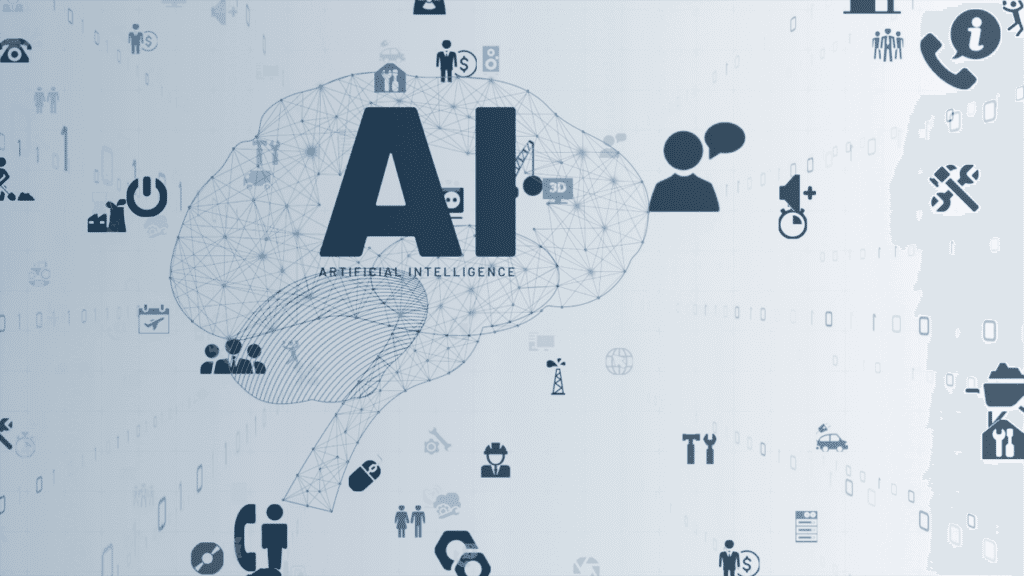Trends in AI marketing are rapidly evolving, and as you look towards 2025, it’s important to understand how these advancements will impact your strategies. With increased personalization driven by data analytics, you’ll be able to cater your offerings more effectively than ever. However, be aware of the ethical implications of AI usage, as emerging regulations will shape best practices in the industry. Lastly, leveraging automation tools can optimize your campaigns, but staying informed about the latest developments is necessary for maintaining a competitive edge.
Key Takeaways:
- Personalization will reach new heights as AI enables brands to deliver tailored content and experiences at an individual level, enhancing customer engagement and loyalty.
- Data Privacy concerns will shape marketing strategies, prompting companies to develop transparent AI practices and prioritize user consent to build trust.
- Automated Content Creation will evolve, allowing marketers to leverage AI tools for generating high-quality visuals, videos, and written content, increasing efficiency and creativity in campaigns.

The Rise of Generative AI in Marketing
Before 2025, generative AI has transformed marketing by enabling brands to produce dynamic and engaging content with unprecedented efficiency. By leveraging data, this technology personalizes customer interactions and optimizes campaigns to meet diverse consumer needs. As a result, AI-driven tools are set to redefine marketing strategies that resonate with your audience, allowing you to stay ahead in a competitive landscape.
Content Creation
Among the most significant changes is the way brands create content. Generative AI tools can now draft blog posts, social media updates, and even video scripts with minimal human input. This efficiency allows you to maintain a consistent brand voice while significantly reducing the time and resources traditionally required for content development.
Personalized Customer Experiences
To further enhance your marketing efforts, generative AI excels in crafting personalized customer experiences that engage and captivate your audience. By analyzing data patterns and preferences, AI can tailor content, recommendations, and communications to fit individual consumer needs.
Consequently, your brand can build deeper connections with customers through highly tailored interactions. This level of personalization not only increases customer satisfaction but also drives brand loyalty. Leveraging generative AI allows you to automate and optimize these experiences, ensuring that every engagement feels unique and relevant. As a result, you can create a more resonant brand experience that appeals to your target audience, ultimately leading to increased conversions and stronger customer relationships.
AI-Powered Data Analytics
If you want to stay ahead in the competitive landscape of digital marketing, embracing AI-powered data analytics is important. By leveraging advanced algorithms and machine learning models, you can unlock valuable insights from vast data sets, enabling you to make informed decisions that drive engagement and conversions. As the capabilities of AI continue to evolve, your marketing strategies will become more data-driven, allowing for greater adaptability to changing consumer behaviors.
Predictive Analytics
Below the surface of traditional analytics, predictive analytics employs AI to forecast future trends and behaviors based on historical data. This technology empowers you to anticipate customer actions, optimize marketing campaigns, and allocate resources effectively. By integrating predictive models into your strategy, you can enhance your promotional efforts and significantly boost ROI.
Enhanced Customer Insights
After harnessing AI analytics, you can cultivate enhanced customer insights that allow for personalized marketing. Understanding your audience on a deeper level leads to customized experiences that resonate and foster loyalty.
Analytics provides you with a comprehensive view of customer behaviors and preferences, revealing patterns that may otherwise go unnoticed. By utilizing AI to analyze data, you can draw meaningful insights into what drives your customers. This can enhance your segmentation strategies and enable tailored marketing messages that speak directly to your audience’s desires. However, be mindful of privacy concerns associated with data collection. Balancing the potential for high conversion rates with a commitment to ethical practices will ultimately strengthen your relationship with customers and foster trust.

Machine Learning and Customer Segmentation
Many businesses are realizing the power of machine learning in enhancing customer segmentation. By leveraging advanced algorithms, you can identify distinct customer groups based on purchasing behavior, preferences, and demographics, allowing you to tailor your marketing strategies effectively. As machine learning continues to evolve, the ability to predict customer needs and behaviors will redefine how you approach customer relationships.
Targeted Marketing Strategies
An effective way to engage your audience is by implementing targeted marketing strategies. By utilizing machine learning for customer segmentation, you can create personalized marketing campaigns that resonate with specific segments, significantly boosting engagement and conversion rates. This approach ensures that your messages reach the right people at the right time.
Behavioral Analysis
An crucial part of your marketing strategy is understanding customer behavior. Behavioral analysis involves examining interactions and patterns of your customers, enabling you to gain insights into their decision-making processes. This understanding allows you to fine-tune your offerings and marketing messages to better serve your audience.
To maximize the benefits of behavioral analysis, you should collect data on customer interactions across various touchpoints, such as website visits, social media engagement, and purchase history. This rich information helps you build a more comprehensive profile of your customers, which in turn informs targeted campaigns and product recommendations. By focusing on patterns in customer behavior, you can anticipate their needs, improve engagement, and ultimately drive sales. Furthermore, always ensure that you handle customer data with care to maintain trust and comply with privacy regulations. This balance will lead to a more effective marketing approach.
Voice Search Optimization
Not optimizing for voice search in 2025 means falling behind your competitors. With the increasing use of voice-activated devices, consumers are relying on voice commands to conduct searches. Tailoring your content for voice search will enhance your visibility and connect you with customers more effectively, positioning your brand as an accessible authority in their minds.
Impact on E-commerce
Impact is evident as voice search drives a significant transformation in e-commerce. As users adopt voice technology for shopping, they seek quick answers and streamlined purchasing options. Optimizing your product listings for voice search can lead to higher conversion rates and increased sales, as you create a more seamless buying experience.
The Role of AI Assistants
Against the backdrop of evolving technology, AI assistants have become indispensable tools in everyday life. They help users manage tasks, answer questions, and even recommend products. This integration into daily routines means businesses can leverage AI assistants to deliver personalized customer experiences that engage users on multiple levels.
Due to the personalized nature of AI assistants, you can cultivate deeper customer relationships. These AI tools gather user data to provide tailored recommendations, enhancing the shopping experience. Additionally, they facilitate voice-activated purchases, enabling convenience and speed that can significantly impact your sales performance. By adopting AI assistants into your marketing strategy, you can stay ahead by delivering a more efficient and user-friendly experience that resonates with modern consumers.
Enhanced Customer Engagement through Chatbots
Keep your customers engaged like never before with advanced chatbots that leverage AI technology. In 2025, you can expect chatbots to offer personalized interactions, respond to queries in real-time, and provide product recommendations tailored to your audience. By integrating these smart solutions into your marketing strategy, you will enhance the overall user experience and build lasting customer relationships, ultimately driving sales and loyalty.
24/7 Support Solutions
Above all, ensuring your customers have access to support at all times is a game changer. AI-powered chatbots will provide round-the-clock assistance for inquiries, troubleshooting, and order status, helping you address customer needs without delay. This not only boosts customer satisfaction but also allows your team to focus on more complex tasks, driving efficiency in your operations.
Conversational Marketing
Customer engagement is evolving with conversational marketing, empowering you to have meaningful dialogues with your audience. This approach fosters real-time interactions that allow you to address customer needs directly, making the customer feel valued and understood. Instead of waiting for customers to reach out, you initiate conversations, guiding them throughout the buying journey.
Plus, embracing conversational marketing means you can offer tailored suggestions based on user behavior and preferences, enhancing the overall experience. By utilizing chatbots for these interactions, you ensure a seamless process where customers can ask questions, share feedback, and even complete transactions within the chat interface. Ultimately, this leaves you with a more engaged customer base and higher conversion rates.

Ethical Considerations in AI Marketing
Once again, you must consider the ethical implications of AI marketing in 2025. As businesses leverage AI to optimize their marketing strategies, they also take on the responsibility of ensuring that their practices are aligned with ethical standards. Staying aware of the potential consequences of AI-driven campaigns is imperative, as you navigate the fine line between innovation and societal norms.
Data Privacy Concerns
Any discussion about AI marketing trends cannot overlook the increasing concerns surrounding data privacy. With AI systems capable of collecting and analyzing vast amounts of personal consumer data, you need to ensure that you respect user privacy while utilizing targeted marketing strategies. Adhering to regulations like GDPR will help protect your brand from potential backlash.
Transparency and Trust Building
Privacy and transparency go hand in hand in fostering trust in your marketing. As you adopt AI technologies, it is important to communicate openly with your consumers. Demonstrating transparent practices can help you build a solid connection with your audience. Strong trust-building initiatives, such as clear data handling protocols and direct communication about AI usage, enhance customer loyalty and drive engagement.
Indeed, prioritizing transparency and trust in your AI marketing strategy is not just beneficial but necessary. You can achieve this by disclosing how AI influences your campaigns and sharing insights on data collection practices. Providing options for users to opt-out of data collection not only respects their choices but also promotes a positive brand image. When your customers recognize that you value their privacy, it strengthens their loyalty, ultimately benefiting both your business and your audience. Accountability and open communication are key elements that can set your marketing apart in an increasingly competitive landscape.
Final Words
Upon reflecting on the AI marketing trends for 2025, you should prepare to harness the transformative power of artificial intelligence in your marketing strategies. By staying ahead of these innovations and incorporating advanced data analytics, personalized customer experiences, and smart automation, you can significantly enhance your brand’s competitive edge. Explore more about how to navigate this evolving landscape by checking out AI and marketing: 2025 trends – Bannerflow, which offers valuable insights to guide your journey.
FAQ
Q: What are some emerging AI marketing trends to look for in 2025?
A: In 2025, some prominent AI marketing trends include hyper-personalization, where algorithms analyze user data to create tailored experiences and recommendations. Additionally, the rise of AI-generated content is expected, enabling brands to produce high-quality materials efficiently. Predictive analytics will also play a significant role, as businesses leverage AI to anticipate consumer behavior, allowing for more effective marketing strategies.
Q: How will AI impact customer engagement strategies by 2025?
A: By 2025, AI is anticipated to significantly enhance customer engagement through advanced chatbots and virtual assistants, providing 24/7 support and personalized interactions. Furthermore, AI-driven sentiment analysis will enable brands to better understand consumer feedback and adjust strategies accordingly. This technology can help create dynamic and engaging customer experiences, ultimately leading to improved loyalty and satisfaction.
Q: What ethical considerations should marketers keep in mind when using AI in 2025?
A: As AI becomes increasingly integrated into marketing strategies by 2025, ethical considerations will become paramount. Marketers will need to prioritize consumer privacy and data protection, ensuring transparency in how data is collected and used. Additionally, the potential for algorithmic bias must be addressed, ensuring that AI systems promote inclusivity and fairness in targeting and messaging. Brands will be challenged to maintain trust while leveraging AI technologies for marketing purposes.








